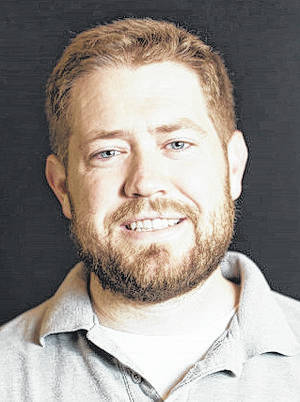
Well-known theoretical physicist Stephen Hawking has said, “All the evidence seems to indicate that the universe has not existed forever, but that it had a beginning about 15 billion years ago. This is probably the most remarkable discovery of modern cosmology. “
The implications of this brilliant man’s observations force mankind to wrestle with an age-old question: How can something come from nothing?
The origin of all things typically gets explained away as so complex that we are justified in taking a “pass.” The topic is above all of our proverbial pay grades. Call it group think, call it complacency, call it whatever you want, but no matter who you are, you either accept or reject the idea that something came from nothing—or you ignore the question entirely. Have you ever wrestled with this question, or have you disciplined yourself to avoid it?
Back in the day when people reasoned about the beginning of all things, there was cultural acceptance that the universe either came into existence or always existed. Those who believed the former usually agreed that creation was the result of a God or gods, a transcendent being or beings. To believe in a transcendent being was the most reasonable explanation, i.e., that something cannot come from nothing; therefore, there must be someone that transcends everything.
History attests to quite a few of our homo sapiens ancestors concluding that there must be an “uncaused cause” out there somewhere. There was cultural acceptance of the conclusion that there must be something that has always existed, has never changed, and has the ability to create what could never have created itself. Was this the thinking of archaic, under-evolved beings?
When arguing about the existence of God, or a supernatural being, or an extra-natural thing, most respond to the argument one of two ways. First: by denying that the universe has a beginning and concluding that everything has always existed. While this view solves the riddle of the universe having a beginning, it does so against leading scientific evidence. Stephen Hawking, and the majority of contemporary scientists, know of no way to explain an immortal universe scientifically.
The second response, and probably the most common, is, “If God created everything, then who created God?” Let’s assume you, along with most of scientific academia, accept Hawking’s premise and are now forced to wrestle with the second question, “Who created God?” How can we answer this question?
We can’t. Not because there is something that created God, but because this question is a logical blunder called a “category error,” which The Atlantic recently illustrated with this story: Two muffins are sitting in an oven, baking. One muffin turns to the other and says: “Is it just me, or is it getting really hot in here.” The second muffin turns to the first and says: “Holy cow, a talking muffin!”
The narrator’s category error is that muffins don’t talk—so the conversation could never have happened in the first place! Similarly, to ask “Where did God come from?” or “Who created God?” is to misunderstand completely the definition of God. ”God” implies an uncreated eternal being through which all things have their genesis, including matter and time. God needs no creator; he is by nature uncreated.
Even if you don’t believe in God, as I assume Hawking does not, to say that the universe had a beginning is to believe in something that is extra-natural or supernatural. It is to believe, or place your faith, in something that transcends logical deduction and scientific reason.
Now, none of what I have stated thus far proves that God exists. But it does illustrate that it is in fact reasonable to believe in God, based upon the scientific evidence that there is something transcendent to the laws of nature. In later weeks, I hope to continue this argument towards the triune God of the Bible as the most rational choice for an uncaused cause.


